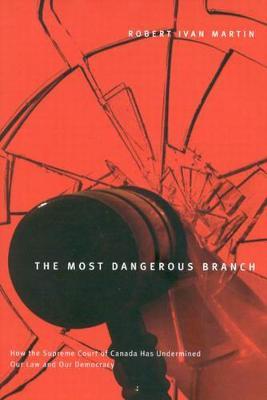Overview
Judges on the Supreme Court of Canada are guided by reason and principle - or so most Canadians think. In The Most Dangerous Branch Robert Martin argues that the court has changed from acting on principles to acting on values, allowing it to impose its own personal preferences. As judges are not elected, Martin argues, they should not be permitted to set the social agenda, amend legislation, amend the constitution, or attack democracy and democratic institutions. The Most Dangerous Branch shows that the Supreme Court has done exactly this in dealing with abortion, assisted suicide, homosexuality, and Quebec secession through decisions that were guided not by reasoned understanding of the principles of law but by the values of judges - values they, as unelected representatives of the Canadian state, had no right to impose. Martin shows that Supreme Court judges have adopted an orthodoxy of moral relativism and identity politics that he likens to a secular state religion. This orthodoxy denies the possibility of objectivity about human endeavour and regards social reality as ""constructed."" While purporting to be concerned with the plight of the oppressed, it is actually based on profound condescension. Martin believes that the ""theocracy"" which dominates the Supreme Court of Canada is subverting democracy and the rule of law. In The Most Dangerous Branch he calls on Canadians to take back their country.
Full Product Details
Author: Robert I. Martin
Publisher: McGill-Queen's University Press
Imprint: McGill-Queen's University Press
Dimensions:
Width: 15.20cm
, Height: 2.50cm
, Length: 22.90cm
Weight: 0.580kg
ISBN: 9780773526143
ISBN 10: 0773526145
Pages: 320
Publication Date: 19 November 2003
Audience:
Professional and scholarly
,
Professional & Vocational
Format: Hardback
Publisher's Status: Active
Availability: Out of stock

The supplier is temporarily out of stock of this item. It will be ordered for you on backorder and shipped when it becomes available.
Reviews
A fresh contribution to the subject. Martin has many amusing turns of phrases and anecdotes. The way he marshals the evidence and allows the evidence to speak for itself will be of value to the educated general reader. It is not overly reflective or philosophical; the critique of judicial review as it is practiced in Canada and of the orthodoxy is persuasive. I read the book with great interest from beginning to end. David Stevens, Goodman and Carr LLP A polemic of high quality. It is written in an engaging manner, which captures the attention of the educated general reader. Martin scrupulously documents his assertions with appropriate references to judicial decisions and secondary literature. Chris Manfredi, Department of Political Science, McGill University
Author Information
Robert Ivan Martin is professor of law, the University of Western Ontario and the co-author of A Sourcebook of Canadian Media Law.



